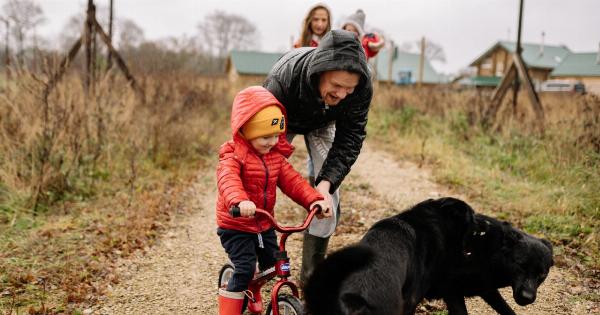Having a dog is one of the most rewarding experiences you can have. They are always there to make you laugh, provide companionship, and give unconditional love.
However, sometimes their behavior isn’t perfect, and it can be a challenge to control or eliminate bad habits. Fortunately, there are several things you can do to change your dog’s behavior for the better.
1. Understand Your Dog’s Nature
Before you can start transforming your dog’s behavior, you need to understand their nature. Dogs are pack animals and are naturally obedient to their pack leader. In a household, that pack leader should be you.
You must establish yourself as the pack leader, and your dog will follow your lead.
2. Start with Basic Training
The easiest way to transform your dog’s behavior is through basic training. Basic training should start when your dog is a puppy. Teaching your dog basic commands such as sit, stay, come, and heel will give you control over their behavior.
It will also establish the relationship between you as the leader and your dog as the follower.
3. Consistency is Key
Consistency is critical when it comes to transforming your dog’s behavior. You need to be consistent with your commands, rewards, and discipline. Dogs thrive on routine, and once they learn what you expect from them, they will follow it.
If you are inconsistent, your dog will become confused, and their behavior could start to regress.
4. Positive Reinforcement
Positive reinforcement is an excellent way to transform your dog’s behavior. Praise your dog when they do something right, and reward them. This can be a treat, a game, or anything else your dog enjoys.
Positive reinforcement will encourage your dog to repeat the behavior you are rewarding.
5. Discipline in a Positive Way
Discipline does not have to mean physical punishment. In fact, physical punishment can be counterproductive and cause your dog to become aggressive.
Instead, use discipline in a positive way by using firm, yet gentle commands and redirecting your dog’s attention to more appropriate behavior.
6. Exercise and Playtime
A bored dog can quickly become a destructive dog. Exercise and playtime are essential for your dog’s physical and mental health. Make sure your dog gets enough exercise and playtime, and they will be less likely to exhibit bad behavior.
7. Say No to Bad Behavior
Sometimes your dog will do something wrong. When they do, it’s essential to say no. Use a stern voice, but don’t yell. You want your dog to understand that what they did was wrong, but you don’t want to scare them.
After you say no, redirect your dog’s attention to something else. For example, if they are chewing on a shoe, take the shoe away and give them a chew toy instead.
8. Stay Calm
Transforming your dog’s behavior takes time and patience. It’s important to stay calm and don’t lose your temper. Getting angry or frustrated will only make things worse.
Remember that your dog is always learning, and it’s up to you to teach them what’s right and wrong.
9. Seek Professional Help
If you are struggling to transform your dog’s behavior, don’t be afraid to seek professional help. A professional dog trainer can assess your dog’s behavior and create a plan to fix any problems.
They can also provide expert guidance and support, giving you the confidence you need to be a successful pack leader for your furry friend.
10. Consistency in Training
Finally, it’s important to stay consistent with your dog training. Even after your dog has learned basic obedience, you need to keep training them to reinforce good behavior and eliminate bad habits.
Consistency is key when it comes to transforming your dog’s behavior, and it’s something you will need to do for the rest of your dog’s life.

























